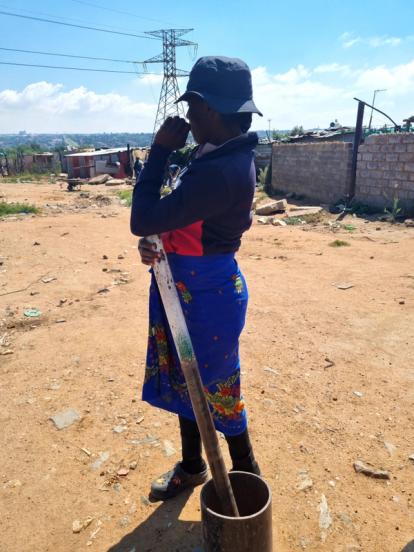
Breaking gender stereotypes: The role of women in artisanal mining
- Post Date
- 04 July 2023
- Read Time
- 3 minutes

The following article is compiled from research carried out by Dr Vidette Bester, International Social Performance Specialist, and was presented at XX ISA World Congress of Sociology, Melbourne Australia in June 2023.
Worldwide, about 30% of the workers in artisanal and small-scale mining (ASM) are women. In sub-Saharan Africa, the proportion of women is higher, about 40% to 50%, although these figures are uncertain due to the informality of the activities.
ASM activities occur primarily in an illegal or, at best informal space. Consequently, the miners are marginalised and, in most cases, criminalised for mining illegally. What is worrying is that women hold subordinate positions in an already marginalised sector and essentially end up on the bottom of an already marginalised group.
The role of women in ASM differs, but most of the time, they are seldomly recognised as ‘miners’, as they partake in secondary activities like sluicing and separating gold, and burning amalgam. Women in the ASM sector face a set of challenges, including sexual harassment and sexual and gender-based violence. A large body of knowledge suggests that women hardly feel the positive effects of artisanal mining whilst paradoxically being the hardest hit by its adverse effects.
However, during 2023 when Dr Vidette Bester interviewed South African women in ASM the feedback she received surprised everyone. In contrast to the main discourse, female artisanal miners were unanimous in the fact that they faced little challenges and used artisanal mining as an economic empowerment activity. The women responded as follows:
“There are no challenges. I just recently started. We are making a living and feeding our kids out of this. I haven’t come across any issues because I do not go underground. I only work on the surface” – Linda*, a female artisanal miner.
“[The only problem is] the police, but for now they have stopped. But amongst us, there is no problem.” – Group of female artisanal miners.
Another left her domestic cleaning job because it paid too little and took up artisanal mining. She described her situation as follows:
“I have been working in Krugersdorp, but the money... It was too small. I couldn’t afford to pay for school fees, and rent and transport, and even food. I was suffering. That is why I decided to leave. And then I started this. But since I have started to work here everything is going well, back to normal. Very well.” - Nina, female artisanal miner.

These vastly diverse responses by the women indicate that researchers should collect gender-disaggregated data when studying the experiences of women in ASM. This will also allow companies and policy makers to make better informed decisions about this sector, including greater effectiveness of legislative responses. A top-down regulatory approach that advocates for gender-responsive initiatives is no longer sufficient. Instead, the voices of the women themselves must be sought to allow for greater gender equality in the sector.
There is still much work to be done to understand the effects of gender-responsive legislation on ASM. Incorporating these valuable experiences into policy, country legislation or regulatory frameworks can play a critical role in making women's contributions to the sector more visible. By amplifying women's voices in this space, we can challenge normative gender norms and roles and aid in improving women's economic opportunities and livelihoods in mining communities. The formalisation of ASM with a gender perspective creates opportunities to challenge and shift such norms in a sector plagued by gender stereotypes - around women's and men's spaces, roles, and behaviors.
*Names are pseudonyms
Recent posts
-

-

-

Navigating the evolving landscape of corporate sustainability and communications in the US
by Chynna Pickens
View post